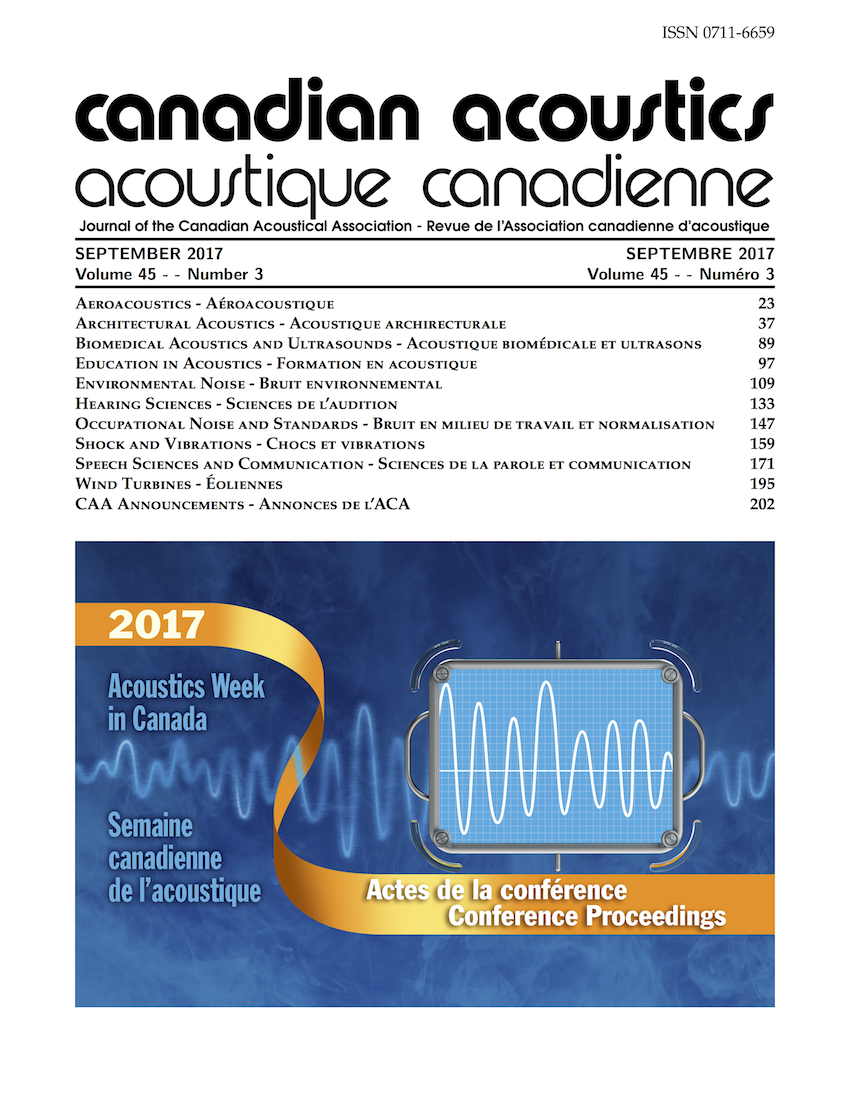Case Studies: Effect of Fasteners Bridging Resilient Channels on AIIC Performance in Wood-Framed Condominiums
Abstract
This paper presents a case study of a wood-framed condominium project where the fasteners affixing ceiling drywall bridged resilient channels thus negating their function. There were no other construction defects.
Complaints were raised by occupants/owners at the time of the one year performance audit required by the Tarion Warranty Program in Ontario Canada.
“Mini impact tests” were done in all units, using average reverberation times to expedite measurement collection and post processing. Ceilings were cut open to count the number of bridging fasteners. A strong correlation was found between the percentage of resilient channel / floor joist intersections with bridging fasteners, and the AIIC scores. This allowed for clear identification of all defective ceilings, which were then taken down and reinstated, subsequently achieving AIIC scores consistent with the design intent.
A second case study is presented for a similar wood-framed condominium project, where a similar relationship between the percentage of resilient channel / floor joist intersections with errant fasters and the AIIC score was found.
Additional Files
Published
How to Cite
Issue
Section
License
Author Licensing Addendum
This Licensing Addendum ("Addendum") is entered into between the undersigned Author(s) and Canadian Acoustics journal published by the Canadian Acoustical Association (hereinafter referred to as the "Publisher"). The Author(s) and the Publisher agree as follows:
-
Retained Rights: The Author(s) retain(s) the following rights:
- The right to reproduce, distribute, and publicly display the Work on the Author's personal website or the website of the Author's institution.
- The right to use the Work in the Author's teaching activities and presentations.
- The right to include the Work in a compilation for the Author's personal use, not for sale.
-
Grant of License: The Author(s) grant(s) to the Publisher a worldwide exclusive license to publish, reproduce, distribute, and display the Work in Canadian Acoustics and any other formats and media deemed appropriate by the Publisher.
-
Attribution: The Publisher agrees to include proper attribution to the Author(s) in all publications and reproductions of the Work.
-
No Conflict: This Addendum is intended to be in harmony with, and not in conflict with, the terms and conditions of the original agreement entered into between the Author(s) and the Publisher.
-
Copyright Clause: Copyright on articles is held by the Author(s). The corresponding Author has the right to grant on behalf of all Authors and does grant on behalf of all Authors, a worldwide exclusive license to the Publisher and its licensees in perpetuity, in all forms, formats, and media (whether known now or created in the future), including but not limited to the rights to publish, reproduce, distribute, display, store, translate, create adaptations, reprints, include within collections, and create summaries, extracts, and/or abstracts of the Contribution.


